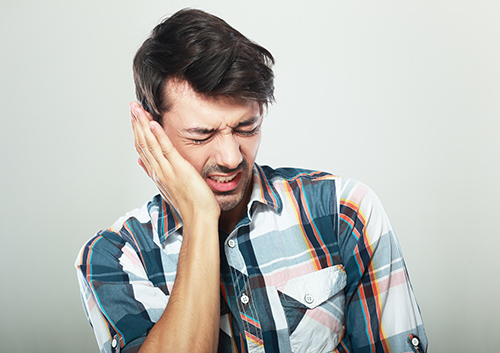Why Are We Recommending a Periodontal Consultation?
October 19th, 2022

The best way to protect yourself from gum disease is to be proactive: practice good oral hygiene at home and schedule regular checkups and cleanings in our Middleton, WI office.
How do you know if your dental routine is doing the job? There are specific symptoms you might notice when you brush and floss, and less obvious signs of gum disease we look for during your dental exams.
The early stage of gum disease is known as gingivitis. It’s generally caused by poor dental hygiene, although certain diseases, age, hormones, and a number of other factors can also put you at risk. It’s time to talk to Dr. Joel Hartjes and Dr. Jon Szewczyk about your gum health if you notice any of these symptoms:
- Bright red or purple gums
- Swollen gums
- Pain or tenderness
- Bleeding when brushing or flossing
- Persistent bad breath
- Receding gums
And sometimes, there are no obvious symptoms at all. That’s why regular checkups are so important. If you have gingivitis, careful attention to your oral hygiene, professional cleaning, prescription mouthwash, or other treatments as needed can reverse the effects of gingivitis and restore your gums to their normal, healthy state.
Why be so proactive? Because, left untreated, gingivitis leads to more serious gum disease, called periodontitis. The bacteria in plaque and tartar cause inflammation, and inflammation leads the gum tissue to pull away from the teeth, forming pockets which become deeper over time. Here, where brushing can’t reach, bacteria continue to multiply, leading to further inflammation, infection, and the eventual breakdown of gum and bone tissues.
The results of untreated periodontitis can be very serious, including:
- Significant gum recession, leaving roots more vulnerable to decay
- Periodontal abscesses
- Loose teeth, or teeth that shift from their proper positions
- Bone loss in the area surrounding the teeth
- Tooth loss
If we see signs of advanced periodontitis, we may refer you to a periodontist.
Periodontists specialize in the diagnosis, prevention, and treatment of gum disease. After dental school, a periodontal degree requires three years of additional advanced education. Periodontists have the training and skill to perform surgical and non-surgical procedures to treat gum disease, as well as to perform cosmetic procedures and place dental implants.
Periodontists are trained to diagnose and treat periodontitis with a number of procedures which they will recommend based on your specific needs. Among the treatments they provide to restore your gum health:
- Topical, time-release, or oral medication
- Scaling and root planing, non-surgical deep cleaning procedures which remove plaque and tartar above and below the gumline, and smooth tooth roots to remove bacteria and help the gum tissue reattach to the teeth
- Flap surgery to treat persistent gum infection, reduce pocket depth, and re-secure the gums snugly around the teeth
- Bone grafts, gum grafts, and other regenerative procedures which help restore and repair tissue damaged by gum disease
If we recommend a periodontal consultation, be proactive. The best way to protect yourself from the significant consequences of untreated gum disease is to see a specialist in this field. Your periodontist has the knowledge and experience to stop gum disease from progressing, treat damaged bone and gum tissue, and restore your healthy smile.


